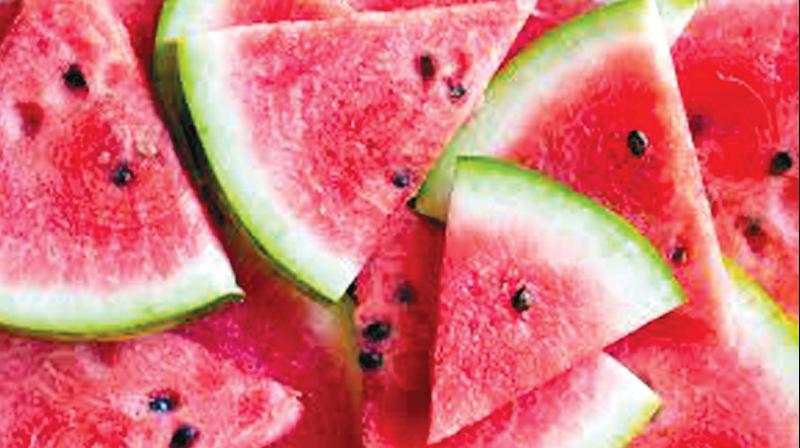Synthetic colouring agents in melons unsafe, may lead to cancer
The toxic colouring agents such as Erythrosine B are being injected to melons to enhance the colour.

CHENNAI: Juicy melons and watermelons by the roadside are usually tempting in summer heat, but synthetic colouring agents and toxic chemicals such as Erythrosine B injected in them can not only lead to diarrhoea and infectious diseases, but also causes cancer at a later stage, warn experts.
The toxic colouring agents such as Erythrosine B are being injected to melons to enhance the colour, increase the shelf life and ripen them over a short period of time.
“The artificial colouring agents in juices and fruits can land someone in hospital instead of aiding in hydration in summer. Erythrosine-B is a banned chemical in few countries as it abnormalities to reproductive system and can potentially lead to infertility. It is found in few researches that the chemical promotes thyroid and cancer related tumors,” said oncologist Dr Anitha Ramesh.
“Injected chemicals given an attractive colour to fruits and juices and are used in large numbers without quality and edibility checks during summer. The ripening of fruits and even vegetables can be done by exposing them to carbide, however, it can be very harmful to health,” said a food safety official.
In order to check adulteration and chemical presence in melons, a slice of melon can be soaked in water. If the melon releases colour, it is unfit for consumption and has been adulterated. Only approved colours and ascents should be used for fruits and juices, say food safety officials. Food safety department recently released an advisory to be cautious while consuming juices and fruits from roadside retailers during summer.

